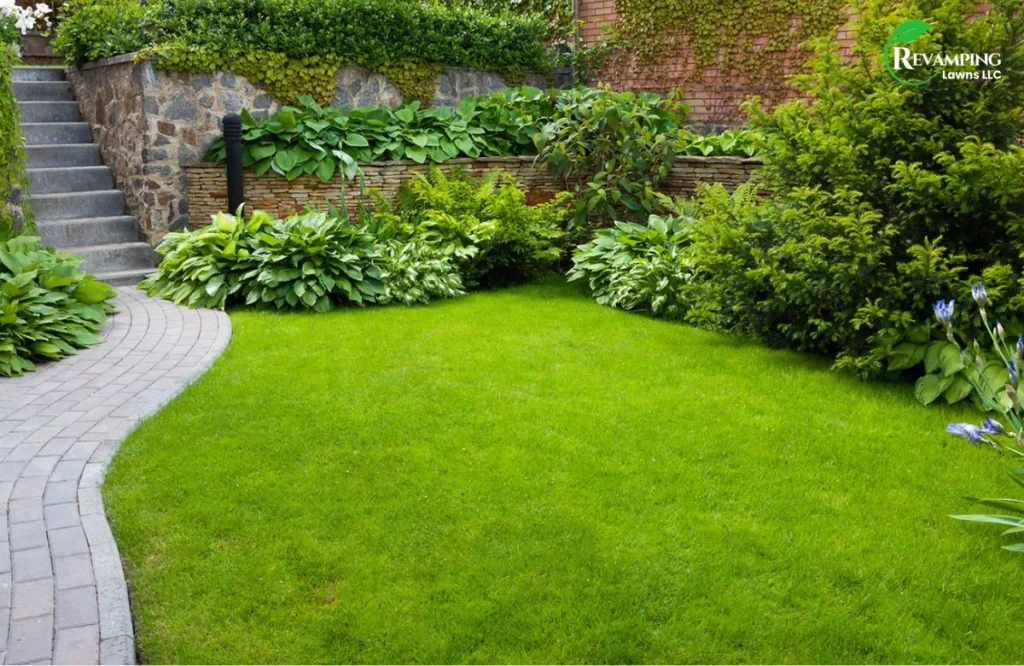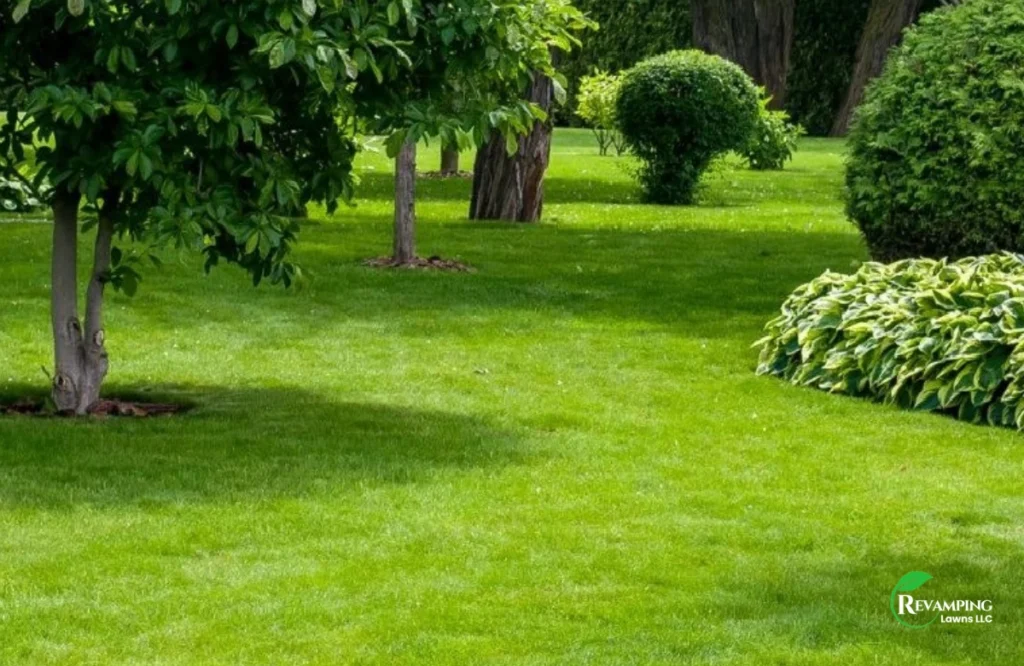A healthy, green lawn enhances the beauty and value of any home. Over the years, more homeowners today are using an organic approach to lawn care to keep their lawns in their natural and sustainable state. There are no harsh chemicals applied in organic lawn care; instead, it simply affirms the well-being of the soil and lets nature take care of the lawn. Such environmentally friendly methods not only result in a beautiful and resistant lawn but also render the lawns safe to families, pets, and the environment.
Why Choose Organic Lawn Care?
Organic lawn involves no chemicals and, undoubtedly, a more adequate solution than conventional lawn maintenance. This process expands the soil with the addition of nutrients and encouragement of beneficial organisms that are naturally present in the soil. This way, you are empowering your lawn in a manner that eventually it can withstand drought, pests and diseases. In contrast, organic care is more preferable in terms of protecting children, pets, and the environment because it avoids the use of hazardous pesticides and fertilizers. When one uses the organics, the lawn becomes greener, healthier and will thus remain beautiful without causing any harm to the planet.
Differences Between Organic and Synthetic Lawn Care
| Aspect | Organic Lawn Care | Synthetic Lawn Care |
| Nutrients | Natural, slow release | Chemical, fast release |
| Soil Impact | Builds healthy soil | Can harm soil over time |
| Environmental | Eco-friendly, safe | Risk of pollution |
| Application | Less frequent | More frequent |
| Safety | Safe for kids, pets | May be toxic |
| Cost | Higher upfront | Lower upfront |
Choosing the Right Grass
Choosing the appropriate grass type is the most important step in starting an organic lawn care program. Climate and soil are the main factors that decide which grasses are best. You can lower the use of chemical products and water simply by opting for grasses that are resistant to pests, diseases, and drought. For instance, Bermuda or Zoysia are grasses that thrive in hot and dry conditions, whereas Fescue or Ryegrass are likely to be good options for cold areas. So, the first steps for a strong and sustainable lawn derive from planting the grasses that are suitable for your environment.
Soil Preparation and Health
Good earth is the basis of a healthy lawn. Organic lawn care is all about restoring the soil structure and fertility with the use of natural materials such as compost and organic matter. The process of aeration in the lawn allows air, water, and nutrients to go to the deeper parts of the roots as it breaks up the compacted soil. Compost provides the necessary minerals and beneficial microbes to the soil and also retains water. By testing your soil you will be able to recognize the deficiencies and have the right amendments to get great results.

Natural Fertilizers
Organic fertilizers are typically made from naturally occurring substances such as compost, seaweed, bone meal, or alfalfa. These fertilizers slowly emit the necessary nutrients, thus, the grass absorbs them evenly while promoting the health of the soil as a whole. For instance, organic options will not result in nutrient runoff caused by synthetic fertilizers into waterways, nor will they burn the grass. The routine use of organic fertilizers builds up the health of the lawn and lessens the need for synthetic chemicals. Thus, your lawn care becomes both effective and environmentally friendly.
Mowing Practices
One of the indispensable parts of organic lawn care is proper mowing. The lawn needs to have the mower blades kept in optimum sharpness so that it will be possible to take clean cuts which do not place a heavy load on the grass. It is advisable to cut at a higher blade setting, generally 3 to 4 inches, which is beneficial in shading the soil, limiting the loss of water, as well as providing the roots with more water to be drawn. A practice, turning grass clippings back into the soil, known as grasscycling, not only gives the soil natural nutrients but also holds the moisture just like mulch does.
Watering Wisely
Watering is a major factor affecting the organic lawn. Water the lawn deeply but not too often, usually once or twice a week, so that the roots will develop sturdier and deeper. It is also worth noting that early morning watering has the advantage of lowering evaporation and the incidence of fungal diseases. Overwatering should be avoided at all costs as it can rob the lawn of the nutrients it needs and encourage the growth of shallow roots. Moreover, water the lawn efficiently, utilizing methods such as the drip system or soaker hoses, which ensure that water gets to the roots with no wastage.
Natural Weed and Pest Control
Organic lawn care uses procedures that are in harmony with nature and means that synthetic pesticides and herbicides will not be used in the maintenance of the lawn. The manual removal of weeds or the use of organic pre-emergent products such as corn gluten meal can help in the prevention of weed growth. The use of beneficial insects, such as ladybugs and predatory nematodes, as a natural source of pest control is a perfect idea. In case of pest outbreaks, products of organic insecticides such as neem oil or insecticidal soap serve as a safe, targeted control, which does not kill the good wildlife.
Organically Creating a Lawn Care Schedule
First, it is strongly recommended to develop a routine lawn care program that is suitable for organic activities, which is important in maintaining a healthy and lively lawn throughout the year. The start should be made by coordinating your activities with the growth seasons of your grass type – cool-season or warm-season grasses.

Work on the ground in early spring by aerating and overseeding to attract new growth. Use organic fertilizers and compost to provide the grass with natural food and at the same time increase the strength of the soil. Regular mowing at a higher blade height and deep watering but less frequently are advised to be followed in the growth period to encourage the deep roots.
Summer care includes monitoring for drought stress and pests, using natural pest controls, and minimizing water usage during hot periods. Again, in the fall, aerate and overseed as necessary to repair summer damage and prepare the lawn for winter. Help the roots develop in the colder months by applying organic fertilizer for the last time.
Winter is mostly a time when the lawn is left alone but a debris-free turf is an important factor in avoiding diseases. These organic tasks, if scheduled consistently, will promote a healthy, strong, and attractive lawn without the need for synthetic chemicals. Planning also helps to save resources and supports the practice of sustainable lawn care.
Conclusion
Organic lawn care is a wise choice and a natural way to have a lush green lawn and at the same time protect the environment. Concentrating on soil health, natural fertilizers, correct watering, and the use of safe pest control methods, you will have a beautiful lawn without the use of harmful chemicals. For organic lawn care and professional service, consider Revamping Lawn LLC. We offer services for creating a lively, eco-friendly lawn that lasts all year round.
FAQs
Organic lawn care is basically a system that utilizes natural products and processes rather than chemical fertilizers and pesticides.
Organic fertilizer releases nutrients slowly and improves the health of the soil, whereas synthetic fertilizer directly feeds the plants, but the soil is likely to deteriorate over time.
Indeed, the use of natural products and methods in the lawn can work in most lawns and grass types with proper application.
Water thoroughly but less often, approximately once or twice a week, to allow the development of strong roots.
Indeed, nature-friendly practices do not involve the use of heavy chemicals, thus making them safe for families and animals.
Overseeding is performed to cover the empty spaces, to increase the lawn density, and to introduce more resistant grass species.
The best time to aerate is when the lawn is growing actively in the season, spring for warm-season grass and fall for cool-season gras


